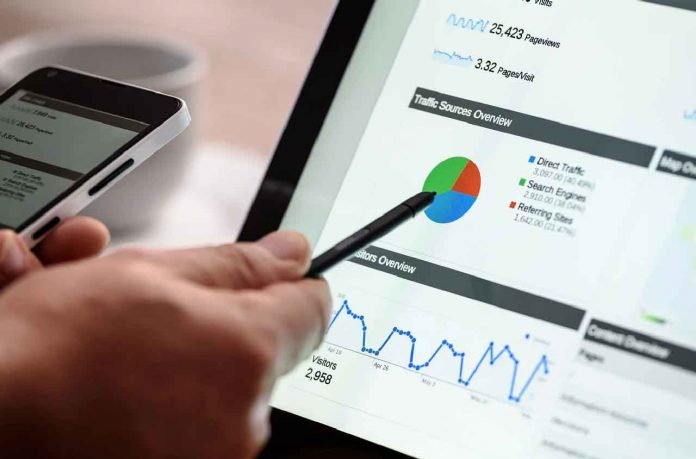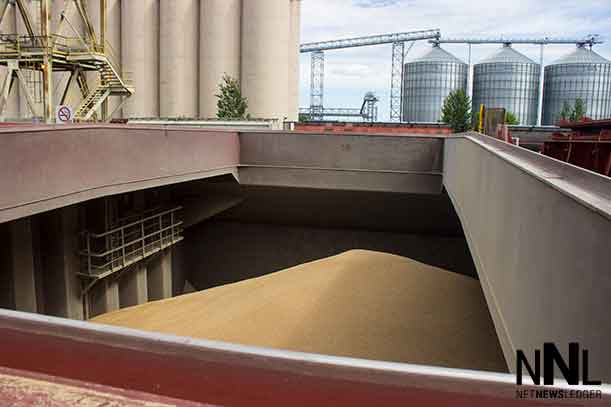Smartphones can do a lot for us and represent the future of modern technology. They can track our health and our wealth. They can help us manage our relationships and give us something to do when we’re bored. But could our dependence on smartphones extend to speeding up processes within industries? One farmer in Ontario thinks so.
Could Smartphones Speed Up Farming?
Ontario grain farmer Peter Gredig suggested maximizing how we use the technology that sits in our pockets to improve how businesses are run and how industry issues are tackled. Around 31 million Canadians have smartphones and use them enough to gain valuable data. Gredig lamented that new equipment was expensive – especially for the 1,000 acres he manages. Instead, he maxes out on his smartphone with cloud-based record-keeping, apps that help with production, and better processes of data sharing with experts. It’s not a huge surprise – the 2021 Canadian Farmer’s Almanac is going digital-only for the first time.
Gredig goes on to suggest that smartphones can connect us to satellite technology, which can track plant health. He also suggests taking a business-focused approach to farming, but segmenting workload into productivity areas and finding ways to improve productivity in these areas. Gredig’s focus with his smartphone has been on utilizing what is there in a strategic way to make it go further – whether with output, marketing, or monitoring.
The last census revealed around 205,730 farms in Canada (representing a 10% decline since the previous census). The next one could see a further decline, but measures reliant on smartphones could convince people that farming isn’t hard work for low reward. Many cite the urbanization from the 1940s onwards as a reason for the decline in farming in Canada – but a smartphone revolution could see more people contributing to the significant agriculture sector (which is the fourth largest Canadian sector).

Have Smartphones Revolutionised Other Industries?
Smartphones and mobile apps are the order of the day for many companies. For example, designated driver app Driverseat, based in Thunder Bay, utilises an app for customers to book a driver to return them and their vehicle back to their home safely. But other industries, that might not have been the obvious ones for smartphones, are proving that being mobile-friendly is their future.
The entertainment industry perhaps shows the benefits of smartphones the most. Looking at the top-performing apps on the Android Play Store, many if not most of these applications are entertainment and gaming-focused. Indeed, more than 50% of all global gaming revenue comes from mobile gaming.
Streaming platforms have also focused on their mobile services, understanding that people like to engage on the go. Not only is there a downloadable feature for when the internet goes down out and about, but in places like India, there is a full commitment to smartphone users. Indeed, Netflix has offered Indian citizens a mobile-only subscription to reflect the way in which most people wanted to engage.
In other sectors of the entertainment industry such as iGaming, as the mobile version of online casino site Betway shows, the same experience has been translated from desktop to mobile allowing players to engage with their smartphones. From roulette to blackjack, this mobile-friendly platform brings desktop classics to any user on the go. The commitment to this fully-optimized mobile site shows how important smartphones are to the entertainment industry – and how mobile play could be a differential factor for customers when choosing a site.
Beyond entertainment, the logistics industry has also employed smartphones to speed up processes and reduce human error. Smartphones have been used to improve how information relating to the supply chain is handled – from sending tracking data, reporting, and sending alerts. With apps and systems that everyone can see, the logistics industry could mitigate against major issues with something as simple as a smartphone.
The rise of digital banking also shows how smartphones have become invaluable in the industry – and have even helped digital-only banks such as Monzo begin to compete with established banks. 88% of Canadians have used online banking, so the appetite for smartphone banking is there. The freedom many feel while using their smartphones for their finances shows how it can be used in the future. 53% of Canadians admit they use online banking methods as their primary method. If we can bank with our smartphones, we can farm with them.
Smartphones are an undeniable way of life for us personally. But as many businesses have shown, there are ways they can be adapted for professional reasons. This helps legitimize the use of smartphones in the agriculture sector as their uses span personal entertainment, logistics, and even financial management. We began to realize how important smartphones were some years ago, but now we are experiencing just how useful they are to industry.








